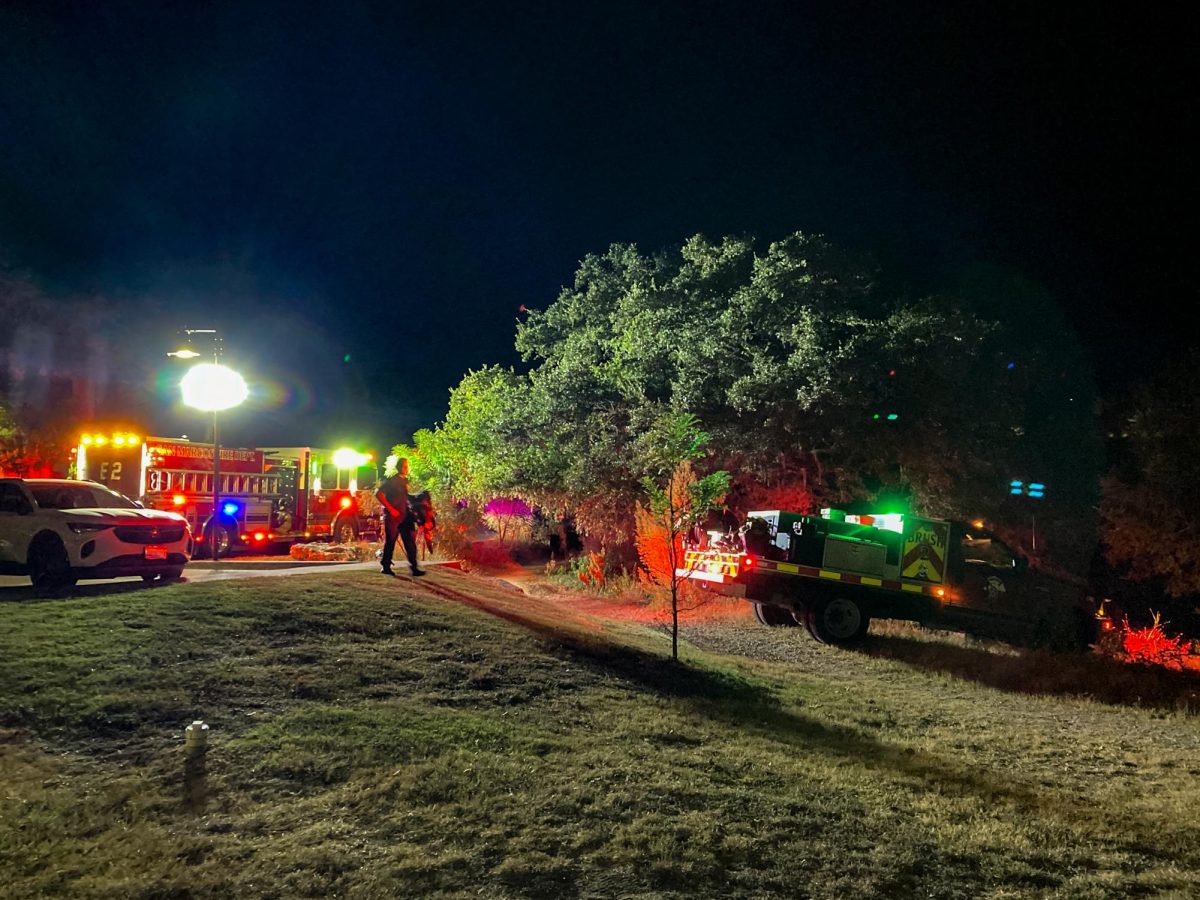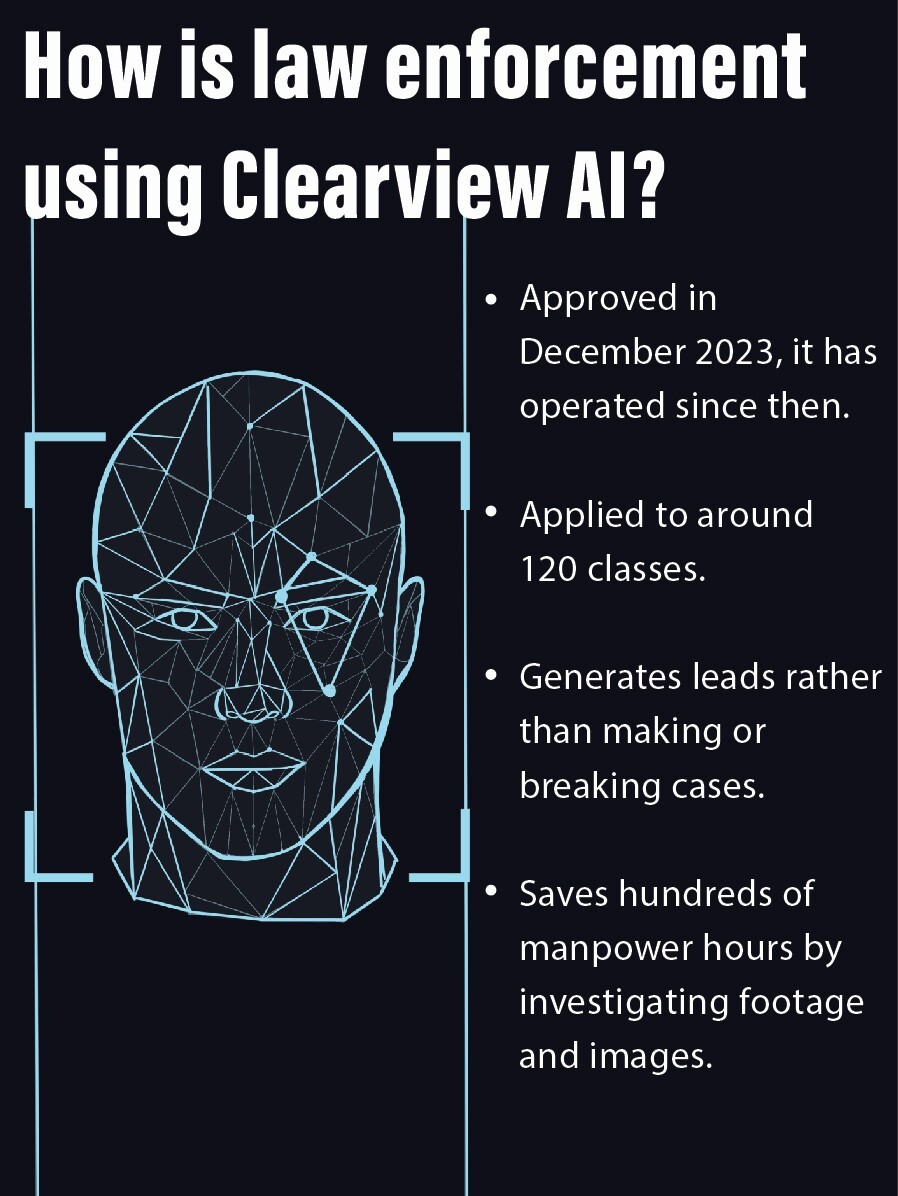Texas State released its 2024 Annual Security & Fire Safety Report that outlines reported crimes for the past three calendar years that occurred on and off the San Marcos and Round Rock campuses on Thursday, Sept. 26.
The reported crimes in the Annual Security & Fire Safety Report are split into four categories: primary crimes, arrests and referrals, hate crimes and Violence Against Women Act (VAWA) offenses.
Texas State reported 29 rapes in 2023, all on campus and of which 28 were specifically in residential facilities on campus. This is a nearly 28% decrease from 40 rapes in 2022, of which 38 were on campus.
The university also reported 14 fondling cases in 2023 and 23 in 2022 – all on campus.
Aggravated assault cases increased by approximately 28% from 36 in 2022 to 46 in 2023, of which 42 were on campus, two were off campus and two were on public property. According to the Annual Security & Fire Safety Report, public property includes “thoroughfares, streets, sidewalks and parking facilities, that is within the campus or immediately adjacent to and accessible from the campus.”
There was an increase to seven hate crimes in 2023 compared to six in 2022. Of the seven, Texas State reported one vandalism incident characterized by sexual orientation on campus, one vandalism incident for religious reasons on campus, two vandalism incidents connected to race on campus, one intimidation incident connected to sexual orientation on campus, a vandalism incident connected to sexual orientation at a student housing facility and one theft related to national origin also at a student housing facility.
Texas State reported a decrease in burglaries from 32 in 2022 to 26 in 2023 – 25 were on campus and one was off campus. Robberies decreased from two in 2022 to one in 2023.
The report defines burglary as unlawfully entering a premises to commit a felony or theft, while robbery involves the act of taking or attempting to take something of value from a person through force, threats or violence.
Liquor law violation arrests saw a slight uptick from 14 in 2022 to 15 in 2023 – all on campus. So did drug law violation arrests from 112 in 2022 to 114 in 2023.
The number of reported arson cases doubled, rising from one in 2022 to two in 2023.
All VAWA offenses increased from 2022 to 2023. Dating violence increased from eight in 2022 to nine in 2023. Stalking increased from 50 in 2022 to 61 in 2023. According to Shilpa Bakre, director of internal communications, online stalking fits under the scope of the offense.
Domestic violence increased from 34 in 2022 to 39 in 2023. In 2023, all 39 instances happened on campus.
“In the state of Texas, roommates are included within the domestic violence statute,” Pam Jacobs, Texas State’s Clery Act compliance officer said. “If there is a roommate squabble that becomes physical or has some factor of violence to it that goes on our domestic violence account.”
According to Jacobs, when a crime is reported and falls within the four categories outlined by the Clery Act, it is included in the Annual Security & Fire Safety Report, regardless of the outcome of a police investigation. However, the report also features a section for unfounded crimes — those dismissed after further investigation. In 2023, no crimes were classified as unfounded.
However, if an incident involves multiple crimes the Clery Act follows a hierarchical rule and encompasses the lesser crimes into the gravest crime. For example, all lesser crimes are subsumed to rape. Some exceptions include arson crimes which are always counted and when a primary crime is also a VAWA offense it can be counted in both categories.
“Every report of an alleged crime is reviewed and the hierarchy is followed where applicable. All alleged reports are counted (unless it is a duplicate report) as a Clery statistic,” a Texas State spokesperson wrote in an interview with The Star. “The prosecution outcome has no bearing on Clery statistics.”
While anyone can report a Clery crime on the University Police Department (UPD) website, Jacobs said UPD along with campus security authorities (CSAs) are the only ones required to do so. Faculty members are not CSAs unless they are also advisors of a student organization.
“Part of the rationale behind having CSAs is to provide students a different option of who to go to, to report if [they] don’t want to go to the police…,” Jacobs said. “In housing [for example], all the RAs are CSAs, and they’re trained.”
The report states Texas State allows individuals to report a crime on a confidential basis. They can also report to CSAs without initiating a police or disciplinary investigation. However, as CSAs are also mandatory Title IX reporters, they have to report instances of sexual misconduct, dating violence and stalking, as well as the identity of the victim and accused to a Title IX coordinator.
“For example, if an incident is reported to Title IX but they do not want to pursue a case via UPD, it would be reported via CSA report, but they may never file a police report,” Texas State wrote.
Local law enforcement agencies and UPD do not need to submit a CSA report. Texas State contacts those agencies based on jurisdiction and asks if any Clery crimes were reported.
“If we receive information that a Clery crime occurred within the applicable times and locations, they are added to the report,” a university spokesperson wrote.
The U.S. Department of Education also investigated Texas State for failing to accurately report crime statistics in 2016 and 2017. In response, the university implemented changes in 2019 by introducing the eFORCE system and hiring staff to monitor Clery Act numbers daily.
“We implemented a Clery [Act] Data Integrity Subcommittee, and we’ve added several positions,” Bakre said. “The way that we hold ourselves accountable and in compliance has drastically changed and improved since 2016 or 2017.”
One of those positions is Jacobs’ position, which was established in 2020, according to Bakre.
The Jeanne Clery Disclosure of Campus Security Policy and Campus Crime Statistics Act, established by Congress in 1990, was named after Jeanne Clery, a college freshman who was raped and murdered in her dorm in 1986 at Lehigh University in Pennsylvania. Her death brought national attention to unreported campus crimes, leading to stricter requirements for crime reporting and campus safety.
Some safety resources offered by Texas State to students include Bobcat Safe Rides, Emergency Call Boxes and safety training classes.




















